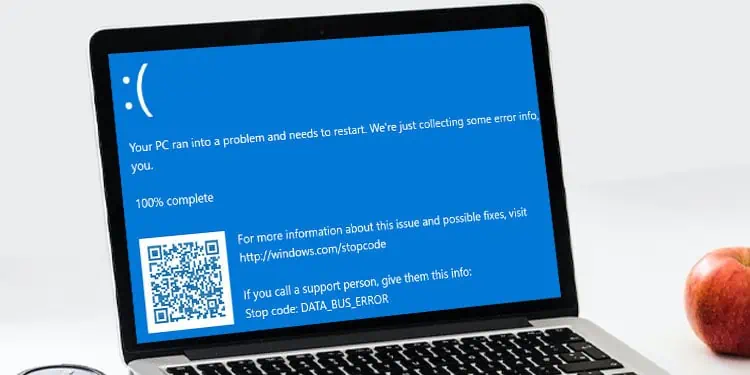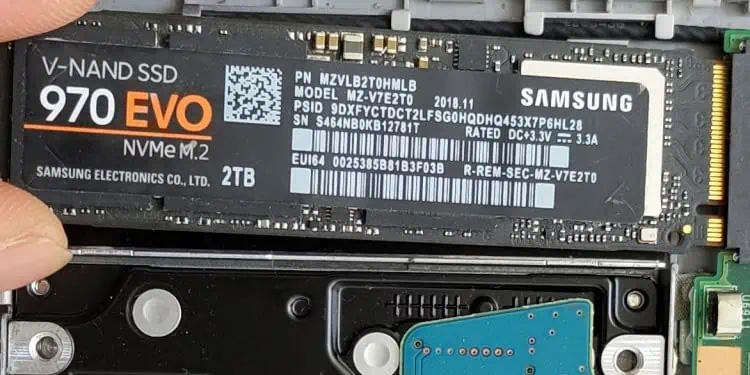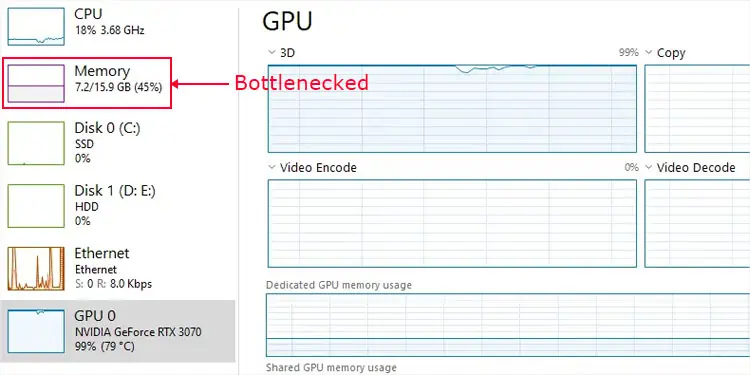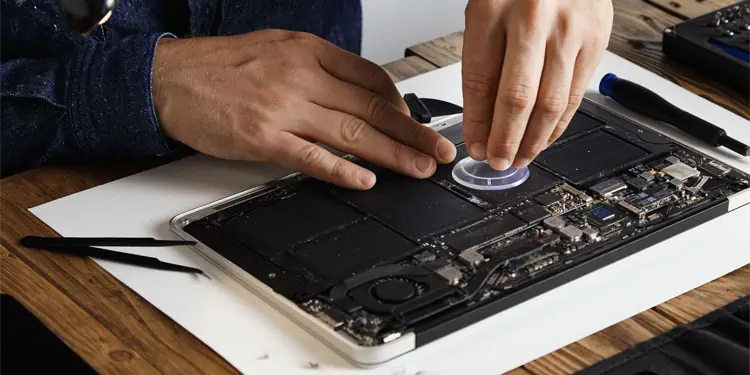Unlike desktops, Laptops are more compact devices. As such, they don’t have many upgradable components and are more prone to overheating and other hardware issues. So, you’ll likely need to keep replacing your laptops sooner than your desktop computers.
But if you want to know the exact time when you’ll need to change your laptop, you need to look at the specific situations. In fact, how long a laptop lasts depends on many factors—how you use it and for what purpose, as well as its current situation.
Sign It’s Time to Replace Your Laptop
It is a little difficult to know exactly when you need to replace your laptop as there are a few situations when repairing the laptop will be enough.
So, here are a few signs that indicate when it’s likely that you need to replace the device.
No Longer Provides All Functions You Need
As the technology industry is improving rapidly, older laptops may not cater to your needs as newer ones come with better graphics components, RAM and CPU processing capabilities, and Storage devices.
As such, the newer laptops have better support for modern games and high-performance applications. Older laptops will no longer suit your purpose if you need to run programs or applications requiring better hardware specifications.
But if you only use common utility apps like word processors or web browsers, even older laptops should work fine.
Start Encountering Many System or Hardware Issues
Another important reason you will need to do away with your laptop is if you start experiencing multiple software or hardware problems.
If it’s a normal issue you can solve after trying some troubleshooting measures, there’s not much of a problem.

But if the laptop shows serious problems frequently, you may need to replace it.
Some of the likely scenarios include,
- You start encountering multiple BSODs or other crashes.
- The laptop has become slow and clunky. Processes require more time to run and experience frequent lags.
- Startup and shutdown take way too long to complete.
- Storage issues, such as the inability to open or modify many files and folders.
- Reinstalling Windows does not help resolve the above issues.
- Your battery is dead or almost dead, but it is not replaceable.
- Your laptop starts overheating very rapidly.
No Longer Gets Any Support
Even if your laptop works fine and you don’t need to use any applications that require better specs, it may still be time to replace it if it has gotten too old.
The most important reason is the lack of support from manufacturers. After a certain time, they will stop support for older products and encourage users to move to newer ones.

Similarly, the operating system comes with certain hardware requirements. For instance, if your laptop does not have TPM 2.0, you won’t be able to upgrade to or install Windows 11. Also, OS manufacturers will cease support for older operating systems for the same reason.
How Long Do Laptops Last?
Technically, laptops can last for a very long time. The problem is that they usually stop catering to your needs after about three to five years. As newer applications and processes become more resource hungry, the older laptops—with limited resources— fail to serve their demand after this time.
Apart from this, the physical wear and tear or damage also impact how long you can feasibly use the laptop. It affects the laptop’s operation and performance, consequently reducing the operation time even further.
Regardless, you can keep using a laptop for about 10 years if you take care of it properly. You won’t be able to utilize the most recent features, but the laptop will have all the core functionalities for your usage. However, the software issues will slowly continue to creep up, and the laptop won’t be able to keep up any longer.
When Should I Upgrade My Laptop (And Not Replace)?
Upgrading the laptop provides some similar benefits to replacing the laptop, such as:
- Replacing an HDD (hard disk drive) with an SSD (solid state drive) provides a significant performance boost.
- Upgrading or adding RAM improves performance if you are running low on memory.
Although these are basically the only things you can upgrade, you need to consider many other parameters before deciding if upgrading the laptop is actually worth it.
Convenience and Cost
The first thing to consider is the difference in cost as well as convenience. Upgrading is generally helpful if one hardware component, such as RAM or storage device, is not working properly or is not enough. As such, you can purchase a new one and check if it improves your laptop’s performance.
But if you want to improve the overall capability of your laptop, you need to upgrade all possible components, which is not that convenient.
Instead, if you invest a little more, you can even get yourself a new laptop with decent specs.
Compatibility Issues
Another thing you need to consider is the compatibility between the devices. Newer RAMs or storage devices may not be compatible with older motherboards. For instance, you can’t use NVMe SSDs on a laptop that only has SATA storage ports. Similarly, DDR5 RAMs don’t fit in DDR4 slots.
If compatible devices don’t offer many benefits, upgrading won’t be as effective. So, your only choice is to replace the laptop altogether.
In fact, I recommend checking whether the laptop is upgradable while buying it. You should check if the laptop supports the latest RAMs and SSDs out there beforehand. This way, you won’t need to replace the laptop and can simply replace or upgrade these components when the time comes.
Laptop’s Age and Condition
Now, let’s talk about the laptop’s age and its present condition. If the laptop is more than 5-6 years old, I don’t recommend upgrading it. The thing is, you can’t upgrade everything on your laptop. So, upgrading the RAM or SSD only prolongs the inevitable a little bit—at most a year.
On the other hand, if it has been 2-3 years and your hardware starts lagging, upgrading the laptop should be fine. Installing an SSD, even a SATA one, improves performance.

However, upgrading a laptop won’t come anything close to getting a new one, but you can still use it for 3-5 more years if the processor and the rest of the components are still good.
Bottlenecks
If you want to upgrade the laptop while improving the specifications of the components, you will only receive limited benefits.
A new laptop with similarly advanced devices will always provide a better performance simply because it will also have better non-upgradable components.
It is especially true for gaming as they require better graphics cards, which you can’t really upgrade on most laptops. Upgrading the RAM as well as the storage won’t show much improvement if you get bottlenecked by the GPU or the CPU.

So, you’ll need to invest in another laptop if you need an overall improvement on the device. But if you only need to keep your laptop’s condition in the peak state without the need for any high-spec components, upgrading is still a good idea.
Should I Repair My Laptop?
As with upgrading the laptop, you might run into the dilemma of whether you should invest in repairs or straight up replace your laptop if you encounter any hardware issues. This matter is easier to tackle—it only depends on the cost of the repairs and the laptop’s age.
If your laptop is getting much older, chances are it’ll also be experiencing other issues, so you’ll need to keep spending on the repairs. The cost for a single repair might be low, but the expense will soon start to accumulate. So it’s better just to replace the laptop.
But if the laptop’s not that old, replacing the laptop straight away doesn’t make much sense from a practical point of view.

How Often Should I Replace My Laptop?
Now that you know in what conditions you have to replace your laptop, you should already be able to guess the answer.
The point is that there’s not a fixed number of years after which you should replace the laptop. It depends on the state of your laptop and its current performance.

You will need to replace the laptop as soon as its specs are not enough for all your applications. If you experience any telltale signs we mentioned earlier, you may need to replace the device much earlier as well.
If you buy the laptop while accounting for its upgradability, you can use it for more years by upgrading its components. But after a few years, upgrading further will only yield diminishing returns.
Similarly, if you buy a high-spec laptop, it will serve you longer than a budget laptop without the need for a replacement any time soon.
